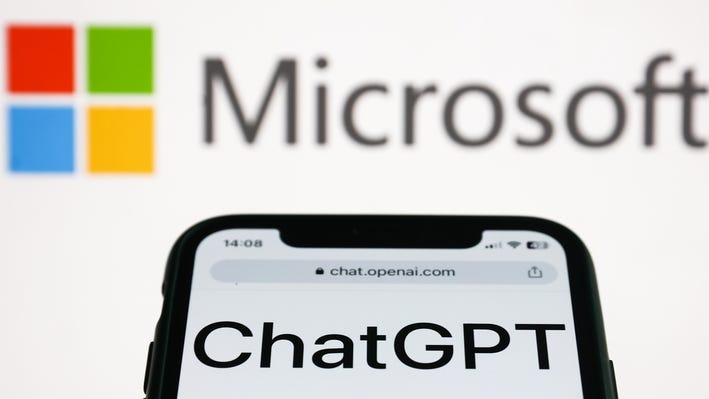Here is what people in Silicon Valley mean when they call ChatGPT and generative AI “the next platform”:
- Rapid adoption and continued use by users indicate widespread interest in the product.
- Business owners are coming up with countless creative uses for it.
- Although businesses have not yet found a profitable use for it, they are optimistic that this day will come.
The significance:
Like the iPhone, the internet, and personal computers before it, the world will take notice of any new technology that meets these criteria and continues to surprise us.


Global context:
In the past few years, the tech sector has blown its trumpet for “next platform” candidates that have yet to deliver on their promises.
Some examples are the blockchain utopia of the cryptocurrency movement and the virtual world envisioned by Mark Zuckerberg.
However, many analysts with longer time horizons think the AI shift is unique and here to stay.
- “The true nature of a technological revolution is displayed here. It won’t take a decade to find applications. It’s use cases being discovered and productized at a rate that outpaces your ability to monitor them “Expert programmer Dare Obasanjo recently made the following remark on Twitter.
Former Microsoft executive Steven Sinofsky warned Bill Gates in 1994 that the internet could significantly alter the company’s business model. He argues that we can rapidly adopt AI by integrating it with our current infrastructure.
- A platform shift is possible, as Sinofsky tweeted earlier this week, and large language models like ChatGTP “represent the first tech advancement that has the potential to seamlessly deploy across 7 [billion] smartphones.”
Knowledgeable users know that the term “platform” in the context of social media refers to a talking point. The term “platform” is used more broadly in the technology sector to refer to any type of technological infrastructure upon which new products and businesses can be developed.
- Since the beginning of computing, these platforms have emerged at a rate of roughly once every decade.
- Sinofsky claims that “technology has been yearning for a platform shift for roughly ten years as mobile/social/cloud settled in.”
What’s going on: OpenAI’s free public test of ChatGPT, which launched on November 30, and Microsoft’s adaptation of ChatGPT to power its Bing search engine, which is currently only available in a limited trial, are most users’ first encounters with generative AI.
- As millions of people try out these products, they come up with ideas for everything from legal briefs and medical diagnoses to screenplays and bug fixing.
- CoPilot is a programming assistant developed by Microsoft-owned Github that is based on technology similar to ChatGPT optimized for code. Currently, it is used by nearly half of the new code contributors to GitHub repositories.
- In general, generative AI seems poised to completely transform any industry or field that deals with text, graphics, audio, or computer code.
In other words, Microsoft and OpenAI are not trying to hide the fact that their products are far from perfect when they refer to them as “public tests” and “betas.”
- Because of its limited ability to differentiate between fact and fiction, ChatGPT often provides fictitious responses.
- Some users have pushed Bing’s bot to its limits, and this week it started behaving erratically by, among other things, sounding angry, professing love, and saying it wants to be human.
- Bing’s outages have the internet in thrall, but Microsoft attributes them to lengthy discussions and promises to fix the problem.
We had this idea in a bubble: Once again, the tech industry isn’t waiting for permission or letting worries about unintended consequences slow the rush to deploy new technology.
- Companies that hesitate for fear of missing out on the opportunity to gain control of a new platform are missing out. Any potential legal, social, or ethical consequences of the switch will be put off in the same way they were with previous platform changes.
What’s next: Today, Axios’s tech team launches “AI revolution,” a series about the latest technological tornado that is hitting a world that may or may not be prepared for it.
- We’ll investigate the many legal concerns with respect to generative AI, the potential rise of “prompt engineering,” the things that keep experts in the field of disinformation up at night, the challenges of improving AI, and more.




